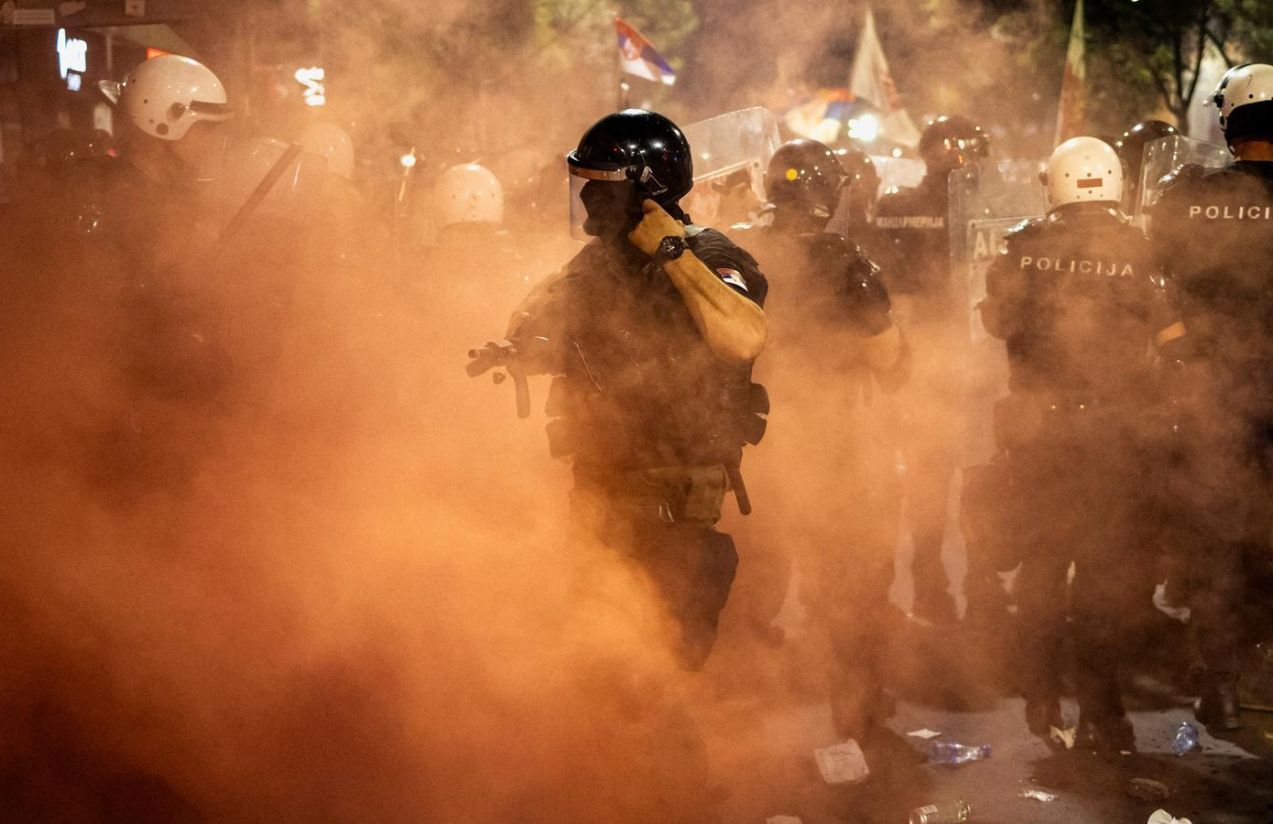In Serbia, a new wave of anti-government demonstrations turned into one of the most violent days recorded in recent months. What began as a peaceful protest in Belgrade quickly escalated into clashes, with direct confrontations between opposition groups, students, and riot police. According to local reports, dozens of people were injured and nearly 50 demonstrators were arrested, marking a critical point in the country’s growing political crisis.
The protests stem from the collapse of a station roof in Novi Sad last November, a tragedy that left 16 dead and fueled accusations of corruption against the government. Since then, thousands of citizens have taken to the streets, demanding early parliamentary elections and greater transparency. Tensions escalated further when ruling party supporters attacked demonstrators, prompting police to respond with tear gas.
Why have these protests drawn so much international attention?
Because Serbia, a candidate to join the European Union, is facing growing scrutiny over its democratic shortcomings. European organizations have urged President Aleksandar Vučić’s government to ensure freedom of expression and avoid violent repression, key conditions for advancing its EU membership aspirations.

